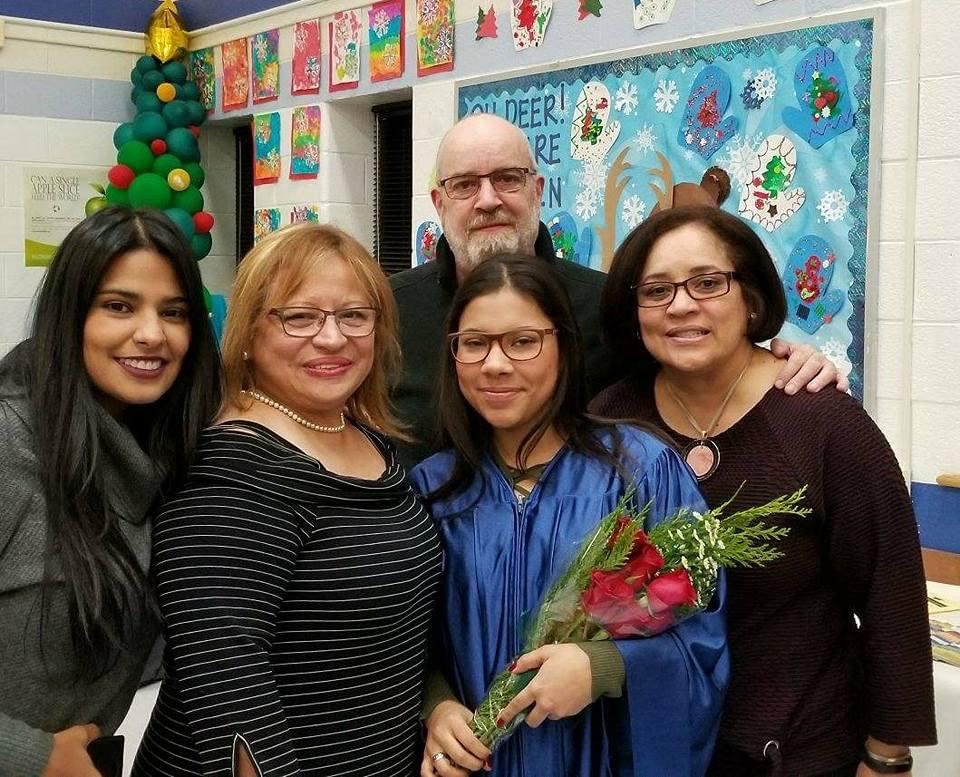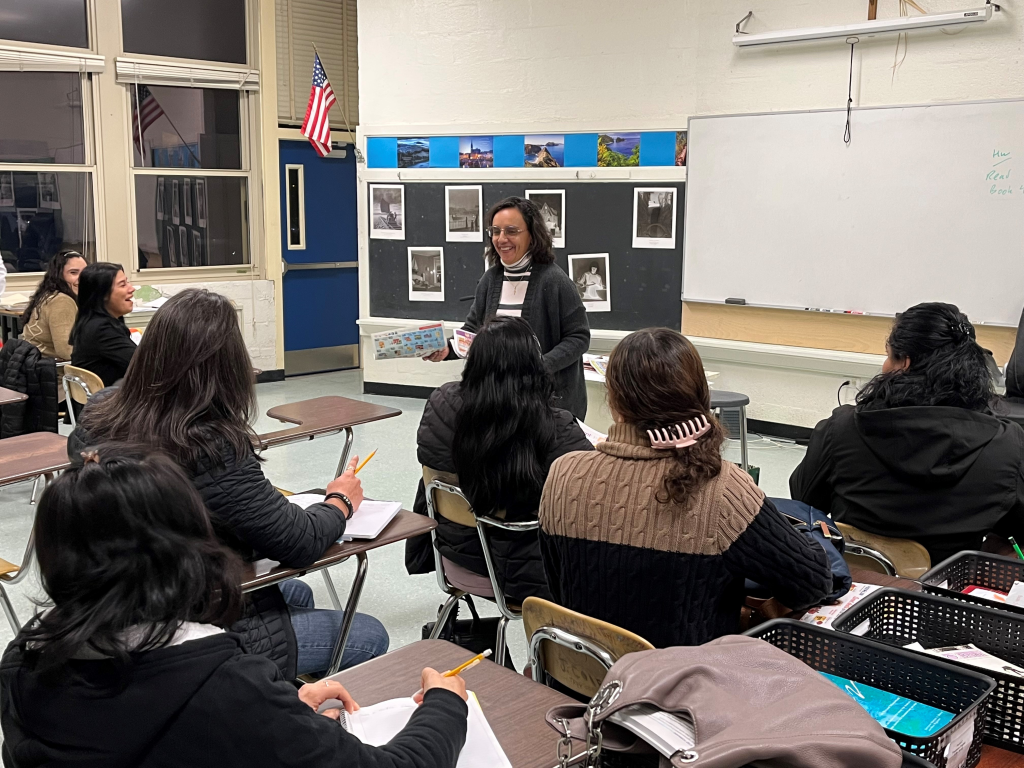For Nathalia Marcano, Catholic Charities’ English for Speakers of Other Languages (ESOL) program was an avenue to continue to grow her career after she came to the United States from Venezuela.
“People who want to learn English should take this course to learn proper grammar and how to speak the language,” said Marcano, who completed the ESOL program in 2017 and now works in construction management and attends Montgomery College. “This class helped me refresh the English I learned back in my country and encouraged me to keep pursuing my studies.”

Established in 2009, the ESOL program offers classes at multiple proficiency levels, including basic, intermediate and advanced to ensure learners receive the support they need. Classes are held during fall, winter and spring, with pre-registration required to secure a spot. The next class starts in September.
Class sizes range from 15 to 20 learners, ensuring that each student has the opportunity to engage and enhance their language skills.
The 12-week course is offered in multiple formats, including in-person sessions at locations in Montgomery County and online classes via Zoom.
For those who prefer face-to-face interaction, in-person classes are held at three locations: the Gaithersburg Library on Tuesday and Thursday, St. Martin of Tours Church on Saturdays and St. Catherine Laboure from Monday through Thursday. Online classes are held via Zoom from Monday through Thursday, allowing participants to join from their preferred location.
Laura Prado, ESOL program supervisor, says the program aims to be a “trampoline for learners,” empowering individuals to reach new heights and equipping them with the language skills needed for academic and professional success.

Marcado has experienced that firsthand. “Catholic Charities opened multiple opportunities for my grandma and myself,” she says. “We both volunteered and took ESOL classes. Now, my grandma, Maria Antonia Cuicar, is a case manager and the coordinator of the Family Literacy Program in Spanish at Catholic Charities. We have witnessed and contributed to helping many families in their needs.”
The success of the ESOL program can be attributed to the hard work of its dedicated staff and volunteers. Teaching duties are shared between volunteers and staff members, creating a supportive learning environment for all participants. While the program has been instrumental in helping learners progress, challenges persist, particularly in encouraging students to advance beyond the beginner level.
“Motivating students to continue to further levels of proficiency is an obstacle for us,” Prado says. “That is why our volunteers and teachers are so integral to the program. The relationships they build with our students help keep them invested in the class and advancing further.”
The program is always looking for dedicated volunteers to assist in teaching students. Students are motivated to continue their journey when they encounter instructors who encourage them to enhance their skills. Those passionate about helping others succeed can visit the volunteer page to learn more.